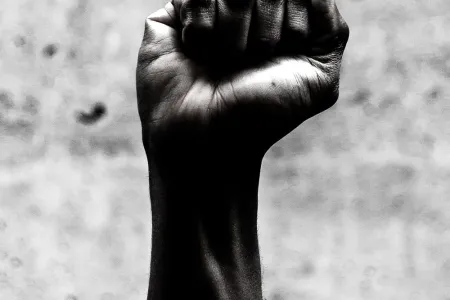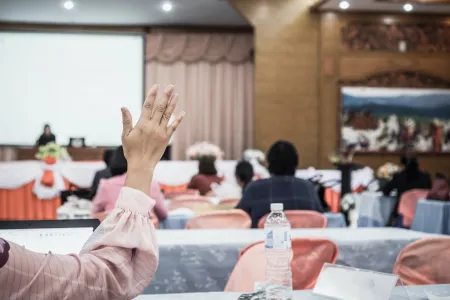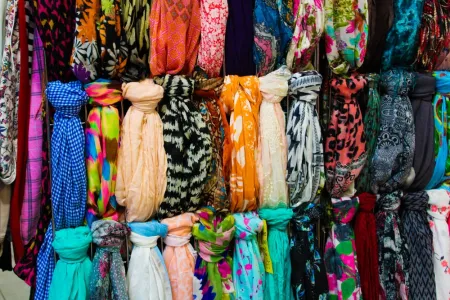Displaying results 31 - 40 of 1071

Wendell Adjetey: Black Activism, History, and Reconciliation in Canada
The Canadian state’s surveillance of Black activism should be grasped through the prism of anxiety surrounding Black activism south of the border. This is one of the conclusions reached by 2014 Foundation scholar Wendell Adjetey in his comparative and historical analysis of black citizenship in the US and Canada. In a CBC Ideas episode, “The Resistance of Black Canada: State Surveillance and Suppression,” produced on 27 February 2018, Wendell showed how his and others’ work in the social sciences and humanities ultimately serves a broader purpose: reconciliation. In an inspirational statement, he asserted that history as a discipline, practice, and art is no less than “a process of reconciling things of the past with things of the present, and hopefully with things of the future.”
Wendell Adjetey is a 2014 Foundation scholar and a doctoral candidate in history and African-American studies at Yale University. Listen to the episode here (Wendell Adjetey’s interventions from 2:45 to 8:20, 22:00 to 27:30, 31:30 to 33:00, and 47:15 to 52:30).
Wendell Adjetey is a 2014 Foundation scholar and a doctoral candidate in history and African-American studies at Yale University. Listen to the episode here (Wendell Adjetey’s interventions from 2:45 to 8:20, 22:00 to 27:30, 31:30 to 33:00, and 47:15 to 52:30).

Cleo Paskal: New Zealand Risks “Strategic Nincompoop” Tag with Pacific Policy
What is the PACER Plus free trade agreement, and why does it matter for international relations in the Pacific? In the days following her presentation at the New Zealand Institute of International Affairs Conference, 2015 Foundation fellow Cleo Paskal was cited in several articles on the implications of New Zealand’s efforts to bind Pacific Island countries to Australasian economies through PACER Plus. Paskal warned that New Zealand’s “bullying and chequebook diplomacy” could backfire, making Pacific nations fall into the arms of China and other rivals while reducing New Zealand's value to the “Five Eyes” intelligence-gathering partnership. She concluded that with Pacer Plus, New Zealand risks being tagged a “strategic nincompoop, at best.”
Cleo Paskal is a 2015 Foundation fellow, adjunct faculty in the Department of Geopolitics at Manipal University, and an associate fellow at Chatham House. Read the articles here and here.
Cleo Paskal is a 2015 Foundation fellow, adjunct faculty in the Department of Geopolitics at Manipal University, and an associate fellow at Chatham House. Read the articles here and here.

Robert Leckey: The Days of Unlimited Trials Are Over
In Quebec, a divorce petition made the headlines when it monopolized the Superior Court during 23 days for its preliminary proceedings alone. In an opinion piece (French only) published on 23 April 2018 by La Presse, 2003 Foundation scholar Robert Leckey denounced "the excessive use of the state’s civil justice system by the privileged class” (translations ours). Noting that under Quebec’s current system, "universal access to an unlimited trial does not necessarily guarantee universal access to justice," Leckey suggested limiting the number of hearing days underwritten by the state for the litigant to seven, for instance. This would make commercial disputes or cases brought forward by wealthy parties more efficient and make it possible for a greater share of the general population to access the courts.
Robert Leckey is a 2003 Foundation scholar and the dean of the Faculty of Law at McGill University. Read his article here.
Robert Leckey is a 2003 Foundation scholar and the dean of the Faculty of Law at McGill University. Read his article here.

Benjamin Gagnon Chainey: Speaking Out on Humanity in the Medical World
How does illness fit into culture beyond the world of medicine? On 6 March 2018, in an episode of “Plus on est de fous, plus on lit!” (French only) produced by Radio-Canada, 2017 Foundation scholar Benjamin Gagnon Chainey explained the "medico-literary" approach of his doctoral project. The language of literature is less regulated than that of law or science – for him, this gives literature the freedom to express aspects of the human experience that would otherwise go unspoken in the medical world. As an example, he quoted the work of Hervé Guibert, an AIDS patient and writer who turned the caregiving relationship’s traditional hierarchy upside down by revealing the caregiver’s suffering.
Benjamin Gagnon Chainey is a 2017 Foundation scholar and a doctoral candidate in French-language literature at Université de Montréal and Université Paris 7. Listen to the episode here (Benjamin Gagnon Chainey’s interventions at 2:23 p.m., from 0:00 to 8:30).
Benjamin Gagnon Chainey is a 2017 Foundation scholar and a doctoral candidate in French-language literature at Université de Montréal and Université Paris 7. Listen to the episode here (Benjamin Gagnon Chainey’s interventions at 2:23 p.m., from 0:00 to 8:30).

Bessma Momani and Jillian Stirk’s Diversity Dividend in Budget 2018
A 1 percent increase in gender diversity would generate 3.5 percent more revenue for Canadian companies: 2015 Foundation fellow Bessma Momani and 2015 Foundation mentor Jillian Stirk reached this promising conclusion in Diversity Dividend: Canada's Global Advantage, a special report funded by the Pierre Elliott Trudeau Foundation and the Panicaro Foundation and published in April 2017 by the Centre for International Governance Innovation. On 27 February 2018, Momani and Stirk’s findings were cited by Finance Minister Bill Morneau in his remarks on Budget 2018 before the House of Commons to explain government measures encouraging equality of opportunity and the promotion of women to leadership positions. Congratulations to Bessma Momani and Jillian Stirk for their input to Budget 2018!
Bessma Momani is a 2015 Foundation fellow and a professor in the department of political science and the Balsillie School of International Affairs of the University of Waterloo. Jillian Stirk is a 2015 Foundation mentor and a former ambassador of Canada to Norway. Read their special report here, and read Finance Minister Morneau’s Budget 2018 speech here.
Bessma Momani is a 2015 Foundation fellow and a professor in the department of political science and the Balsillie School of International Affairs of the University of Waterloo. Jillian Stirk is a 2015 Foundation mentor and a former ambassador of Canada to Norway. Read their special report here, and read Finance Minister Morneau’s Budget 2018 speech here.

Kerrie Thornhill: Ritual Child-Rape in Post-Conflict Liberia
How does post-war development impact rape practices? In her article “Power, predation, and postwar state formation: the public discourse of ritual child rape in Liberia,” published on 21 April 2017 by Third World Thematics, 2012 Foundation scholar Kerrie Thornhill noted that the dominant public discourse linked child rape to witchcraft and that, against the backdrop of President Ellen Johnson Sirleaf’s gender-sensitive post-war administration, this led to a contestation of the legitimacy of power in general and of government in particular. Thornhill further highlighted that understanding the public discourse and power dynamics behind rape can lead to better research – and ultimately better policy – on sexual violence in conflict-affected countries. It bears noting that hers was the first-ever peer-reviewed article published on this topic – good work, Kerrie!
Kerrie Thornhill is a 2012 Foundation scholar and an assistant professor at the London School of Hygiene and Tropical Medicine. Read her article here (full access restricted).
Kerrie Thornhill is a 2012 Foundation scholar and an assistant professor at the London School of Hygiene and Tropical Medicine. Read her article here (full access restricted).

Leah Levac: Women in Office and Municipal Anti-Harassment Initiatives
During and following elections, women seeking public office often face harassment by staff, colleagues, and even citizens. In “How to Ensure More Women Run for Public Office,” an article published on 7 March 2018 by The Conversation Canada, 2007 Foundation scholar Leah Levac argued that fighting against harassment at the municipal level will not only make cities and towns safer and more inclusive for all, but will also secure greater gender diversity in public office. By modelling inclusive spaces, municipalities will democratize the idea that women’s experiences can be affected by their physical ability, their Indigenous status, their race, age, and numerous other factors, and will fight against the roots of the pernicious attacks targeting political women.
Leah Levac is a 2007 Foundation scholar and an assistant professor in the department of political science of the University of Guelph. Read her article here.
Leah Levac is a 2007 Foundation scholar and an assistant professor in the department of political science of the University of Guelph. Read her article here.

Bessma Momani: Canadian Arab Youth Minimize or Erase Their Identities When Travelling
If you are an international traveller, it is likely you have had to empty a forgotten water bottle or abandon a deodorant at airport security. But have you ever had to regulate your behaviour to ward off other people’s fears, just to reach your destination? In “Canadian Arab Youth at the Border: Cultural Dissociation, Fear Management, and Disciplining Practices in Securitized Spaces,” an article published on 6 March 2018 in the Journal of International Migration and Integration, 2015 Foundation fellow Bessma Momani and co-authors Melissa Finn and Jenna Hennebry examined how the War on Terror’s racialized and securitized identities prompt Canadian Arab youth to “perform their Canadian-ness to substantiate their innocence” when travelling. This often requires them to minimize – if not erase – their identity. The fact that many Canadian Arab youth have come to see themselves as second-class citizens in border and travel transit spaces also reflects the extra-legal dimension of governmentality awarded to airport officials in North American national security systems, the authors concluded.
This article showcased Momani’s progress on her Pierre Elliott Trudeau Foundation current targeted-area-of-inquiry project, “Canadian Inclusion: The Case of Muslim Youth.” With this project, Momani hopes to shed light on Muslim youth’s experiences of integration in Canada. Targeted-area-of-inquiry projects are Foundation-supported research, projects, and events that address one of three areas: diversity, pluralism, and the future of citizenship; water, energy, and food security; or Indigenous relations in Canada.
Bessma Momani is a 2015 Foundation fellow and a professor in the department of political science and the Balsillie School of International Affairs of the University of Waterloo. Read her article here.
This article showcased Momani’s progress on her Pierre Elliott Trudeau Foundation current targeted-area-of-inquiry project, “Canadian Inclusion: The Case of Muslim Youth.” With this project, Momani hopes to shed light on Muslim youth’s experiences of integration in Canada. Targeted-area-of-inquiry projects are Foundation-supported research, projects, and events that address one of three areas: diversity, pluralism, and the future of citizenship; water, energy, and food security; or Indigenous relations in Canada.
Bessma Momani is a 2015 Foundation fellow and a professor in the department of political science and the Balsillie School of International Affairs of the University of Waterloo. Read her article here.

Melanie Doucet: Breaking the Cycle for “Crossover Youth”
In Canada, it is more likely for youth in care to end up in the youth justice system than to graduate high school – even more so when the youth are African-Canadian or Indigenous. In an opinion piece published by Policy Options on 18 April 2018 as part of the special feature “Widening the Lens on Criminal Justice Reform,” 2014 Foundation scholar Melanie Doucet and Harisson (Harri Sun) Pratt demonstrated how the phenomenon of “crossover youth” – young adults involved in both the child protection and criminal justice systems – is largely attributable to the criminalization of behavioural problems, themselves rooted in the dehumanizing experiences of the child welfare system. To break the cycle for “crossover youth” at the systemic level, Doucet and Pratt argued for a restorative justice approach: based on Indigenous justice themes of community healing, mediation and resolution, this holds much more potential for resilience and change than punitive approaches.
Melanie Doucet is a 2014 Foundation scholar and a doctoral student in social work at McGill University and Université de Montréal. Read her article here.
Melanie Doucet is a 2014 Foundation scholar and a doctoral student in social work at McGill University and Université de Montréal. Read her article here.

Adelle Blackett: Race and Discrimination in the Quebec Labour Force
In 2016, Canadian-born black Quebecers faced a 13.4 percent unemployment rate, Canadian-born Arab-Quebecers a 14.5 percent rate, and those who don't identify as visible minorities a 6.6 percent rate. In “Facing Race,” a special edition of “The Current” produced by CBC on 9 March 2018 in Montréal, 2016 Foundation fellow Adelle Blackett and her co-panelists Dania Suleman and Philippe-André Tessier addressed the many tropes and challenges around race and discrimination in the Quebec labour market. For instance, Blackett argued that there is a need to move beyond the belief that a lack of language skills explains higher unemployment rates in immigrant or visible minority communities in Quebec. On the province’s Human Rights Commission, she further noted that there was a need to move beyond serving the “aesthetics of equity” to attain “real critical mass in the institutions that matter” to see a substantive decrease in racial discrimination in employment.
Adelle Blackett is a 2016 Trudeau fellow, professor of law and William Dawson scholar at McGill University, and Canada Research Chair (Tier 1) in Transnational Labour Law and Development. Read and watch her interventions on the show.
Adelle Blackett is a 2016 Trudeau fellow, professor of law and William Dawson scholar at McGill University, and Canada Research Chair (Tier 1) in Transnational Labour Law and Development. Read and watch her interventions on the show.

